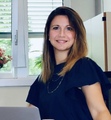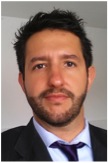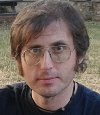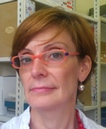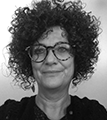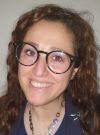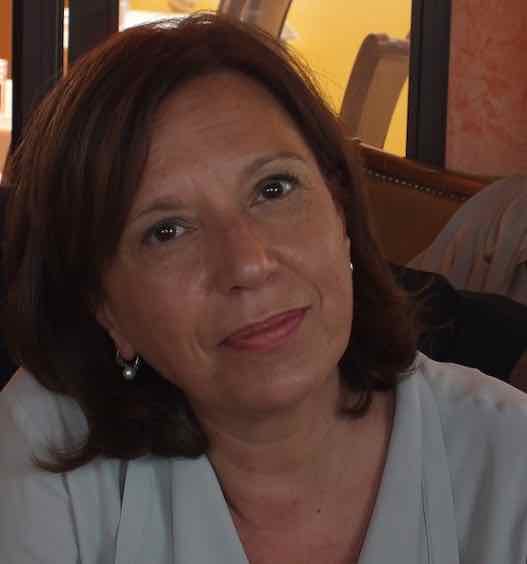Studying at the University of Verona
Academic calendar
The academic calendar shows the deadlines and scheduled events that are relevant to students, teaching and technical-administrative staff of the University. Public holidays and University closures are also indicated. The academic year normally begins on 1 October each year and ends on 30 September of the following year.
Course calendar
The Academic Calendar sets out the degree programme lecture and exam timetables, as well as the relevant university closure dates..
| Period | From | To |
|---|---|---|
| MED ING annuale | Oct 2, 2024 | Sep 30, 2025 |
| MED ING 1° semestre | Oct 2, 2024 | Dec 20, 2024 |
| MED ING 2° semestre | Jan 2, 2025 | Sep 30, 2025 |
| Period | From | To |
|---|---|---|
| Tutti i Santi | Nov 1, 2024 | Nov 1, 2024 |
Exam calendar
To view all the exam sessions available, please use the Exam dashboard on ESSE3. If you forgot your login details or have problems logging in, please contact the relevant IT HelpDesk, or check the login details recovery web page.
Should you have any doubts or questions, please check the Enrollment FAQs
Academic staff
Study Plan
The Study Plan includes all modules, teaching and learning activities that each student will need to undertake during their time at the University.
Please select your Study Plan based on your enrollment year.
1° Year
| Modules | Credits | TAF | SSD |
|---|
2° Year It will be activated in the A.Y. 2025/2026
| Modules | Credits | TAF | SSD |
|---|
3° Year It will be activated in the A.Y. 2026/2027
| Modules | Credits | TAF | SSD |
|---|
4° Year It will be activated in the A.Y. 2027/2028
| Modules | Credits | TAF | SSD |
|---|
5° Year It will be activated in the A.Y. 2028/2029
| Modules | Credits | TAF | SSD |
|---|
6° Year It will be activated in the A.Y. 2029/2030
| Modules | Credits | TAF | SSD |
|---|
| Modules | Credits | TAF | SSD |
|---|
| Modules | Credits | TAF | SSD |
|---|
| Modules | Credits | TAF | SSD |
|---|
| Modules | Credits | TAF | SSD |
|---|
| Modules | Credits | TAF | SSD |
|---|
| Modules | Credits | TAF | SSD |
|---|
Legend | Type of training activity (TTA)
TAF (Type of Educational Activity) All courses and activities are classified into different types of educational activities, indicated by a letter.
Sensor networks and Internet of Medical Things (It will be activated in the A.Y. 2028/2029)
Teaching code
4S012595
Credits
9
Scientific Disciplinary Sector (SSD)
-
Learning objectives
The teaching aims to provide the fundamental notions for making use of solutions for patient remote monitoring and coaching using devices and systems based on the modern paradigm of the Internet of Medical Things.
Relying on electronics and artificial intelligence notions, this course will provide the student with knowledge and skills for the use of networks of environmental and wearable sensors for diagnosis (even early in the prodromal phase of the disease), treatment, monitoring, coaching, and rehabilitation of patients with acute and chronic pathologies, mainly attributable to the neurological, neurodegenerative, neurorehabilitative and geriatric fields, with the most advanced diagnostic techniques, with or without the aid of artificial intelligence and machine learning techniques.
The practical internship will allow the student to carry out practical experiences using environmental and wearable sensor networks in the main application scenarios (including early diagnosis, monitoring, coaching, and rehabilitation).
Examination Methods
The learning assessment includes a practical test which consists of the creation and subsequent oral presentation of a system for the remote monitoring and control of a patient using a network of sensors.
Evaluation criteria
Knowledge and understanding: At the end of the course, the student will have to demonstrate knowledge and understanding relating to the functioning and characteristics of devices and applications based on the Internet of Medical Things paradigm. Ability to apply knowledge and understanding: The student will have to demonstrate: - to know how to define the medical requirements for the design of a remote patient control and monitoring system based on sensor networks, - to know how to design and use telemedicine applications based on IoMT systems in the neurological, neurodegenerative, neurorehabilitative, and geriatric fields, - to be able to collaborate with technology experts (e.g., computer, automation, mechanical engineers) to define the specifications of new applications based on IoMT.
Free choice courses
Modules not yet included
Career prospects
Module/Programme news
News for students
There you will find information, resources and services useful during your time at the University (Student’s exam record, your study plan on ESSE3, Distance Learning courses, university email account, office forms, administrative procedures, etc.). You can log into MyUnivr with your GIA login details: only in this way will you be able to receive notification of all the notices from your teachers and your secretariat via email and soon also via the Univr app.
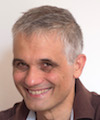
 giuseppe.bertini@univr.it
giuseppe.bertini@univr.it
 045-802-7682
045-802-7682
